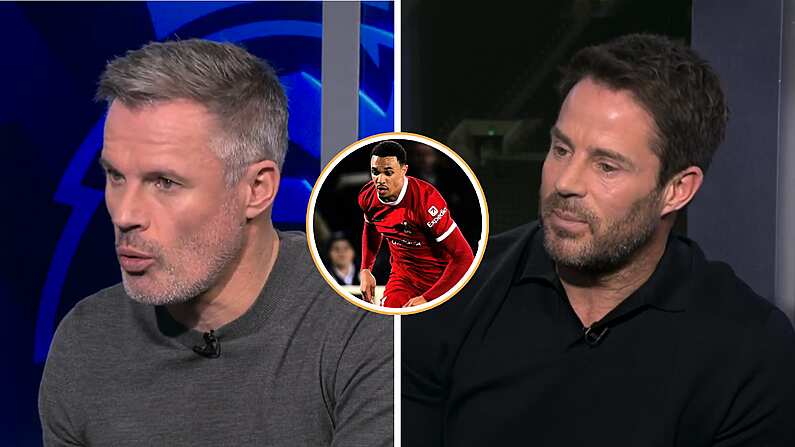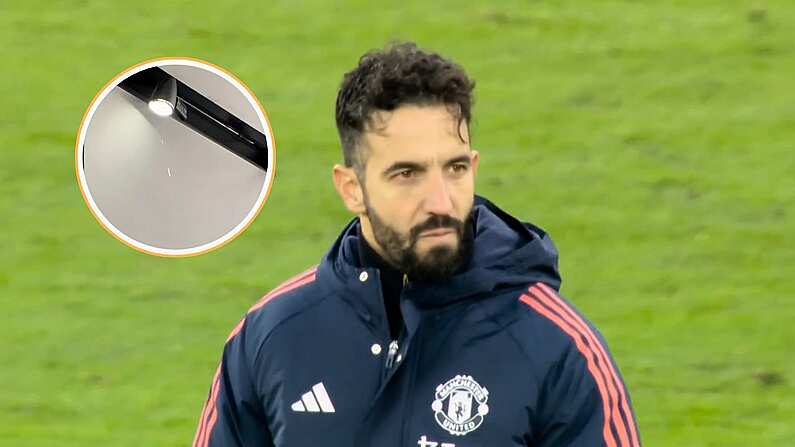The 24-team Euro 2016: how was it for you?
It wasn't exactly vintage fair: there was an average of 2.12 goals per game, a reduction on both Euro 2012 (an average of 2.45 goals every game) and Euro 2008 (which saw a slightly higher 2.48 goals in every game). This is all despite the fact that this year's tournament had more games in which they could have boosted that average.
It is easy, therefore, to look at the bloating of the tournament with the addition of extra eight teams, and blame it for the drop in goals: minows gathering to encamp in their own penalty, desperately protecting a point against a superpower.
This stat will be used to argue against the 24-team structure ahead of Euro 2020, but to argue that the flooding of the tournament with extra nations is the reason it led to a drop in quality is to miss the point of international tournaments totally.
International tournaments have not represented the top level of the game since the end of the 1980s.
It is easy to see Diego Maradona slaloming through the English defence through the stifling heat and hazy television picture in Mexico in 1986 and see it as the apotheosis of the international game.
The fact that Maradona later apologised to a teammate for not passing it to him to finish - imagine, amidst this extraordinary solo run, having the time and awareness to look up, spy a pass and ignore it - felt like a gratuitous display of genius that caused you to ask in happy exasperation: is there no end to the gifts of international football?
The answer to that is yes, there was. That was the end, and with the possible exception of Marco Van Basten's volley in 1988, the club game has been ahead of the international game ever in terms of quality ever since.
This came about with the founding of the Champions League, which led to the maximising of television revenue, which in turn caused the inflation of player wages and the stockpiling of talent at a small pool of clubs guzzling at Europe's top table. This means the Champions League is a footballer's true test of greatness.
International football is no longer about transcendent displays of footballing quality you won't see elsewhere. Instead, it is a throw-back to the fundamental concepts: representation, pride, creating memories, the weaving of wonderful tales and sheer bloody enjoyment.
UEFA's addition of eight additional teams did not lessen the quality massively - it merely meant we saw the limitations that would have been exhibited in a 16-team more often - but it did add massively to those fundamental concepts of telling some good stories and inspiring nation's youngsters.
In all likelihood, we would have been complaining about the quality of the 16-team tournament; it would have been merely a more efficient method of being bored. Heavyweights Germany, Italy and Spain, for example, have just one out-and-out striker of Champions League quality between them, in Alvaro Morata (two if you wish to stretch this to include Thomas Muller).
Two sides of considerable individual talent, Belgium and France, were so poorly managed as to stifle most of that quality.
In contrast, it was the minnows which added the sparkle. Wales' progression to the semi-finals was affirming: seeing Eden Hazard and Gareth Bale outshone by Hal-Robson Kanu and Sam Vokes in a European quarter-final will never happen in the Champions League.
Former Argentina Cesar Luis Menotti had a wonderfully lyrically description of football:
To be a footballer is to means being a privileged interpreter of the feelings and dreams of thousands of people.
The club game has gone so far past this as to be considered an absurd comment, but its relevance persists at international level. If you doubt that, watch Iceland's celebration following the England game:
There is a genuine connection between crowd and players here; one which can only be highlighted on this grand a scale by international football.
From our point of view, Ireland created some truly great memories at this tournament: Robbie Brady's winner against Italy will be an epoch of our generation. Ronnie Whelan's roar will echo on Reeling in the Years for the rest of our lives; it is the game you brought to bed knowing it's the first thing you will think of when you wake up, the game that's won forever.
By contrast, top level club football crossed the rubicon on this aeons ago. Now, the Premier League is marketed on what Americans call the Michael Jordan effect: the promotion of actors over the story. The NBA finals, for example, were as much Lebron v Curry as it were Cleveland v Golden State.
Next season's Manchester derby will not be seen as the clash of two neighbours with differing concepts of identity, but instead as a vast, allegorical struggle, between Pep Guardiola's pursuit for artistic perfection and Jose Mourinho's persecution of any artistic pursuit.
It is why European football has this obsession of Ronaldo versus Messi, arguably a more tedious debate than the occasional refusal of managers to shake hands.
International football is more about the collective. This had its most powerful image last night, of Ronaldo - the game's finest proponent of incorrigible sheer bloody-mindedness - stood helplessly on the sidelines, cajoling teammates to success.
Let club football be the preserve of the most breathtaking pieces of skill; the clash of the titans that can be easily quantified and marketed as Ronaldo v Messi or Pep v Jose.
The bottom line of international football is the intangible pride of millions of people is its bottom line. It is more difficult to quantify.
Aside, perhaps, in that one number: 24.










